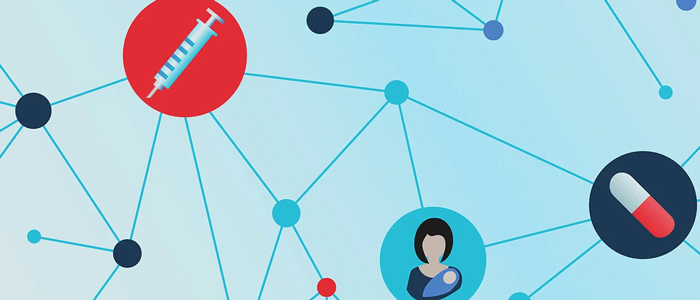Building better health systems
The greatest challenges and advances in global health, demand systems strengthening interventions.

Nossal has developed an online course to promote systems thinking and build the capacity of global health practitioners to apply health system strengthening tools and approaches to their work. For the past 5 years, the course has been offered to over 540 UNICEF staff and partners, with graduates of past years of the course reporting increased confidence taking health system strengthening actions and multiple changes in work practices.
This year’s UNICEF cohort includes 115 staff from postings in over 40 different countries. As part of their progress through the course, participants submit blogs to discuss learning content in the context of their work within health systems across these varied settings.
We are constantly delighted at the innovations of our students. With permission, we are reprinting a selection of blogs to highlight just some of the thought-provoking discussion of real world examples of how a lack of ‘systems thinking’ has led to unanticipated consequences arsing from health system interventions.
Ngozi Kennedy, Chief of Health, UNICEF DPRK (Outposted to Bangkok)
- To address the problem of poor health outcomes, especially in rural areas, the Liberian government committed to develop a comprehensive and robust Community Health Assistant (CHA) program that connects remote communities to the public health system. CHAs are trained to provide Promotive, Preventive services with the goal of contributing to reduction of Childhood Illness and death. Despite the good intent of the Policy and programme below systemic factors as well as feedback have prevented the programme from fully achieving its designed purpose. These include the following.
- CHAs are recognized and respected as doctors in the community, as such their emphasis has been on providing treatments rather than providing the holistic package including Preventive and Promotive services
- Primary health facilities receive inadequate drugs supplies and are unable to give the CHAs their quota of drugs which results in stock outs at community level. This results in a negative feedback where community members lose confidence in the CHAs and begin to try to access services from higher levels or informal providers with all the associated risks, challenges and opportunity costs
- Other system issues include challenges in cash flow - it became impossible to pay CHAs through the government which resulted in long periods in which CHAs did not receive incentives further demotivating them and affecting the quality of their service
Amirhossein Yarparvar, Regional Health and Nutrition Specialist, UNICEF ECARO Regional Bureau
- Recently the Government of Azerbaijan has established the State Agency on Mandatory Health Insurance (SAMHI), as a completely separate entity to the Ministry of Health which used to be the sole accountable entity. While the establishment of SAMHI provides a critical opportunity to improve health financing through piloting and scaling up of the national Mandatory Health Insurance schemes and reforming the Primary Health Care system, the lack of system thinking throughout this process has resulted in major unclarities related to the division of labor and the roles and responsibilities of the new agency versus the MOH. This has partially disincentivised the MOH as the older entity and hence, as an example of emergent behavior, the MOH adopts a competing role with the Insurance agency to safeguard their old roles and responsibilities which has further complicated the context, where the cooperation between the MOH and the insurance agency is limited. While such health system reforms can have major influence on the health and nutrition of mothers and children in the near future, lack of system thinking throughout the process can at least delay or complicate the achievement of the goals.
Victoria F Isiramen, Health manager, UNICEF Nigeria
- The baby friendly initiative in Nigeria is a good example of a phase transition. The baby friendly initiative was successfully introduced and gradually gained momentum in the 80s and 90s. Health workers of all cadres got trained and became ambassadors of the initiative. Facilities were designated baby friendly, huge numbers of rural and urban women took up the practice and it became a norm. It was successful and it got even more successful due to a magnifying feedback loop behavior – breastfeeding was much cheaper and convenient for women, it translated to less expenditure on baby feeds, less hospital visit for diarrhea, in addition mothers are given extended maternity leave. Thus more women were practicing exclusive breastfeeding.
Would you like to join the more than 30,000 professionals who work to shape health systems enrolled in this course? Nossal Institute with the support of UNICEF, are offering a modified version of this course as Massive Open Online Course (MOOCs. Everyone who joins this course the full benefits of studying online for free including a Certificate of Achievement on successful course completion. Enrol now.
Nossal Institute offers a range of Professional Development Opportunities. Our subjects at the University of Melbourne are offered through the Community Access Program, and are perfect to keep you up to date with the latest research and information. Browse our 2021 subjects
